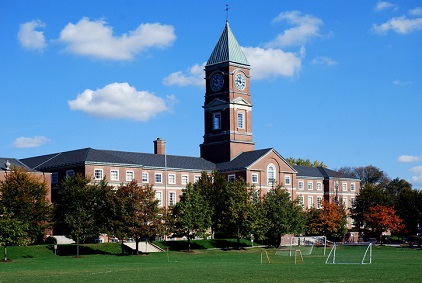
CREDIT: This story was first seen in The Telegraph
Public schools are launching a new diversity drive that will see children who risk being put into care offered places at Eton College and Harrow School instead, The Telegraph writes.
Under the initiative, named The Boarding Schools Partnership, youngsters from some of the most vulnerable families will enroll at some of Britain’s top boarding schools.
More than 80 councils have signed up to the scheme which will be launched on Tuesday, July 4, by the schools minister Lord Nash and Lord Adonis, a former Labour education minister.
Harrow, Rugby, Benenden and Eton are among the schools taking part. Colin Morrison, chair of the Boarding Schools Partnership, said the school fees, typically ranging from £25,000-£39,000 a year, will be covered by their local councils.
This is far less expensive than keeping a child in care, which costs at least £100,000 a year, but does not include the cost of care for children during school holidays.
“It will be expensive but if it keeps children from having to go into care, it will be worth it”, Mr Morrison told The Sunday Times.
Currently, only about 100 children go to private boarding schools paid for by councils, but Mr Morrison hopes that the scheme will help boost this number to about 1,000 a year within five years.
Shean Shrigley, 19, who lives on a council estate in Blacon, Chester, with his mother, a cleaner, and three younger sisters, graduated from Eton College under a similar scheme for disadvantaged youngsters. He said he believed that vulnerable children would do far better in schools like Eton than in care.
“In foster care you feel abandoned,” he told The Sunday Times. “Eton is a place where people have got a community and support behind them. It makes a massive change to people’s lives. I was underprivileged but I have my mum and my family. In foster care, children have no one.”
In the past, similar schemes have previously failed to get off the ground. Earlier this year, a multi-million pound government backed project to give disadvantaged children free places at top boarding schools was axed because social workers have “low aspirations” and are failing to make referrals.
Under the scheme, children deemed at risk of “poor social and emotional outcomes” due to family difficulties would be sent to prestigious boarding schools.
The project, which was funded by the DfE and the Education Endowment Fund (EEF) was intended to save public money in the long-run by avoiding the costs of expensive local authority care.
However Buttle UK, the charity leading the project, said it was unable to proceed because local authorities were not willing to refer children.
Sir Kevan Collins, chief executive of the Education Endowment Foundation, said that recruiting children for the programme was “incredibly challenging”.
“It was a real struggle to recruit enough young people to make even a smaller pilot trial statistically secure,” he said at the time.
“One of the major barriers was that some local authorities wanted to keep the children where they are, which is of course understandable. Some were worried that they wouldn’t fit in or that boarding school wouldn’t be right for them.”
The project was first launched in 2014 and originally aimed to recruit 400 vulnerable children for boarding schools. But the DfE and the EEF, which had committed £410,000 and £200,000 respectively, both pulled their funding from the project earlier this year.
